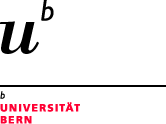Interfakultäre Koordinationsstelle für Allgemeine Ökologie (IKAÖ) |

Forschung

Energy Policy and Swiss Elites: The Acceptability of Energy Measures
Hanspeter Kriesi, Prof. Dr.
Maya Jegen, diplôme d‘études supérieures
en science politique

|
"We hope for a contribution to the rationalization process in energy policy." Hanspeter Kriesi |
Goals
During the past twenty years, Swiss energy policy has been characterised
by an evolution in priorities: questions of security and self-sufficiency
marked the seventies; politics over nuclear energy overshadowed the seventies
and eighties; discussion about environmental problems dominated the eighties;
finally, the debate on the liberalisation of the electricity market emerged
in the nineties. We suppose that this change in topics has had structural
impacts. Our project aims to analyse these structures and their change
in time on two different levels: power coalitions and alliances
on the one hand, and cognitive structures on the other. We compare
these two types of structures to see if and how power configurations and
arguments are interrelated. Comparisons are also made between national
and cantonal structures in Switzerland.
Through this structural analysis, we hope to identify any opposition and/or
problems that may hinder the effective implementation of energy policy
with respect to the objectives of sustainable development.
Questions
To what extent do Swiss elites accept different energy measures and
what are their main criteria for decision?
(By elites we understand all actors on the national and cantonal level
which participate directly or indirectly in the decision making process,
i.e. representatives of political parties, federations, trade and industry,
science, public administration, and social movements).
Methods
In order to identify the elites, we apply three classical approaches in political science literature (reputational, positional and decisional). As a complement, we use network analysis to examine power coalitions and alliances as well as cognitive structures of acceptance. In addition, the latter are studied by a choice questionnaire, which allows for determination of arguments for and against different energy measures.
Hanspeter Kriesi
Maya Jegen
Département de science politique
Université de Genève
![]()
